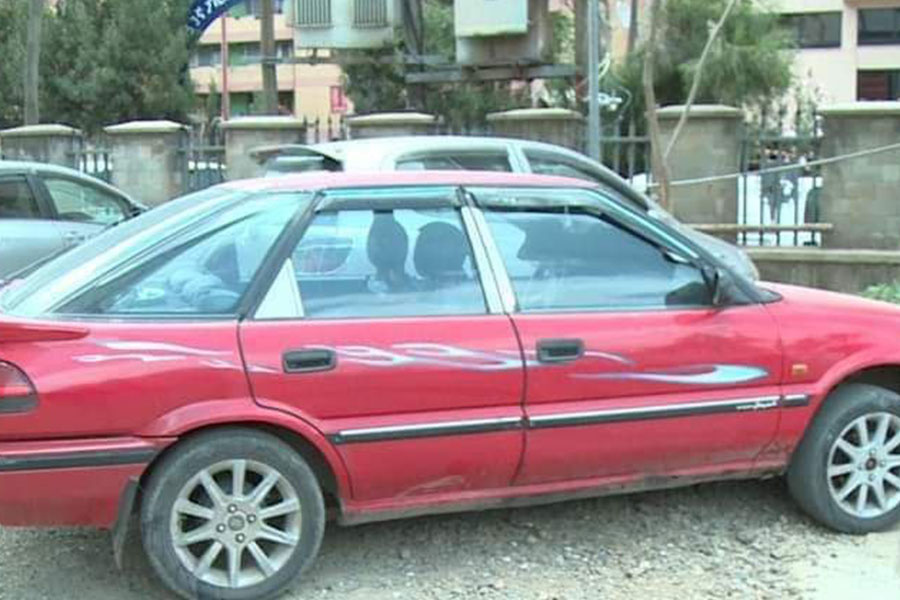
Sunday with Eden | Apr 16,2022
Jun 20 , 2020
By Kidist Yidnekachew
It is rare to find a meaningful debate over issues on Tv considering the competition for securing short attention spans with sentimental, political or flashy topics. But some have a way of surprising us.
Over the weekend, EBS, one of the first satellite Tv channels in Ethiopia, invited people on their "Sunday with EBS" show, including a psychologist, to discuss children that have been sexually abused by people close to them.
The discussion then took an unexpected turn. It looked at an issue that is barely brought up when the issue of crime is discussed in Ethiopia. Typically, the criminals are automatically assumed to be terrible people that have strayed from what society finds acceptable. They are bad despite how society operates, not because of it.
But the program proceeded to discuss how the abusers themselves might need help, and if there is a way that a free hotline can be established to help them with the deep psychological trauma that leads them to commit such acts. Even if the prevailing assumption is that these people are bad in and of themselves, it is to society's benefit to support them before they can do any harm.
Are they criminals in the end?
Indeed. Confinement, in prisons, is the most practical means we have found as a society of dealing with people that have committed a crime and may do it again. There is a lot to be said of the treatment within prisons, of criminal justice systems across the world, but no alternative means of dealing with them has been developed.
But there may be means of preventing these things from happening, and that is sympathy, not for the crimes they have committed, but for the psychological trauma they may have been exposed to that led them to it. It should be clear by now that if punishing criminals was an effective tool in and of itself, there would not be criminals anymore.
There is a missing ingredient, and I am not the first person to say this. Far from it. There is a consensus within the sciences that behind the actions of human beings, good or bad, are cultural, economic and psychological circumstances that push them in that direction. We have known this for decades, though criminal justice systems have been slow to respond, as this study, as reported by The New York Times, testifies:
"A 1985 study of all 15 adolescents in the United States who were condemned murderers found that 13 had been victims of extreme physical or sexual abuse. In nine cases the abuse was so severe - characterised as ''murderous" by the researchers - that it led to neurological damage. Similarly, a study of nine women imprisoned for fatal child abuse found that all of them had experienced severe maltreatment themselves."
Also striking among what was discussed on the program was the role of parenting in all of this. It is parents that must teach their male children to respect women, to protect them from harm and speak against any kind of injustice, provide for their family, and be caring and loving. We can do this best by being role models. Little boys need to see their fathers treat their mothers with respect, when they show her love and when they provide for their families.
The mind of a child is a blank slate and they are very quick to pick up on things and imitate what their family members do. If a boy at a young age sees his dad beat his mother, he is going to grow up thinking that is how women and wives should be treated. If he sees his dad being affectionate to his mother, he will grow up to become a loving man and father. Some children, regardless of their upbringing, because of factors outside the home environment, might commit crimes, but this should not downplay the role families play in bringing up a responsible and good citizen.
Crime is not the work of a single person. It is a collective failure of society.
PUBLISHED ON
Jun 20,2020 [ VOL
21 , NO
1051]


Sunday with Eden | Apr 16,2022

Life Matters | Apr 17,2021

Sunday with Eden | Oct 03,2020

Life Matters | Jun 25,2022

Agenda | Jun 11,2022

Commentaries | Dec 19,2021

Agenda | Aug 03,2019

View From Arada | May 11,2024

Fortune News | Jan 01,2023

Life Matters | Nov 26,2022

My Opinion | 131507 Views | Aug 14,2021

My Opinion | 127863 Views | Aug 21,2021

My Opinion | 125841 Views | Sep 10,2021

My Opinion | 123471 Views | Aug 07,2021

Dec 22 , 2024 . By TIZITA SHEWAFERAW
Charged with transforming colossal state-owned enterprises into modern and competitiv...

Aug 18 , 2024 . By AKSAH ITALO
Although predictable Yonas Zerihun's job in the ride-hailing service is not immune to...

Jul 28 , 2024 . By TIZITA SHEWAFERAW
Unhabitual, perhaps too many, Samuel Gebreyohannes, 38, used to occasionally enjoy a couple of beers at breakfast. However, he recently swit...

Jul 13 , 2024 . By AKSAH ITALO
Investors who rely on tractors, trucks, and field vehicles for commuting, transporting commodities, and f...

Jun 28 , 2025
Meseret Damtie, the assertive auditor general, has never been shy about naming names...

Jun 21 , 2025
A well-worn adage says, “Budget is not destiny, but it is direction.” Examining t...

Jun 14 , 2025
Yet again, the Horn of Africa is bracing for trouble. A region already frayed by wars...

Jun 7 , 2025
Few promises shine brighter in Addis Abeba than the pledge of a roof for every family...

Jun 29 , 2025
Addis Abeba's first rains have coincided with a sweeping rise in private school tuition, prompting the city's education...

Jun 29 , 2025 . By BEZAWIT HULUAGER
Central Bank Governor Mamo Mihretu claimed a bold reconfiguration of monetary policy...

Jun 29 , 2025 . By BEZAWIT HULUAGER
The federal government is betting on a sweeping overhaul of the driver licensing regi...

Jun 29 , 2025 . By NAHOM AYELE
Gadaa Bank has listed 1.2 million shares on the Ethiopian Securities Exchange (ESX),...